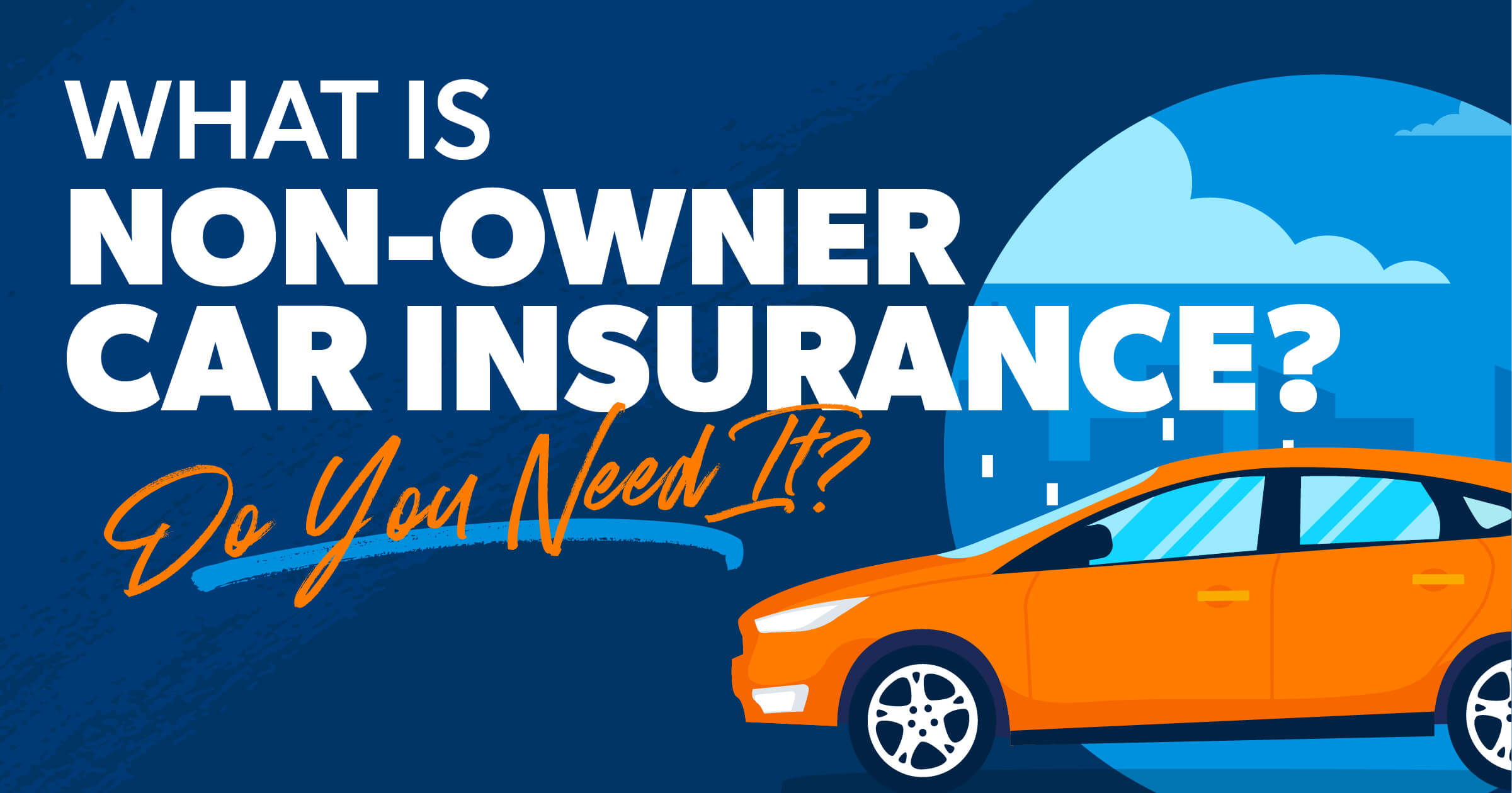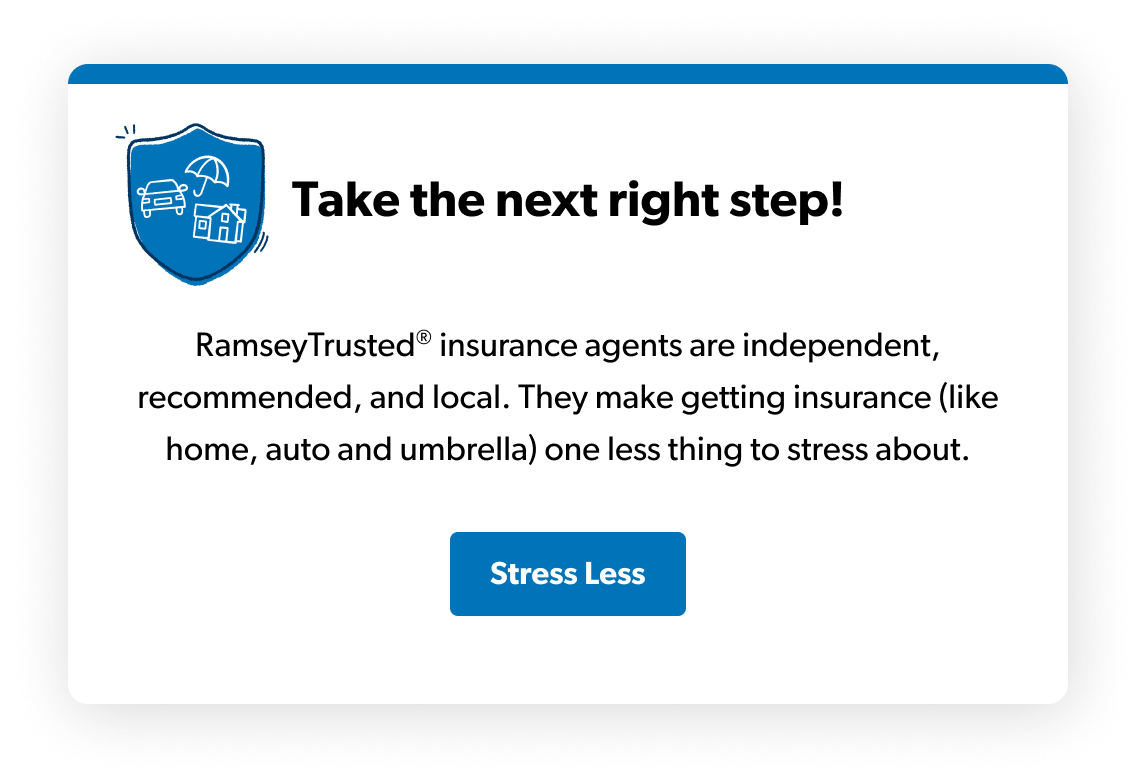What Is Non-Owner Car Insurance and Do You Need It?
8 Min Read | May 1, 2025

If you own a car, you should have car insurance for it. (Duh—it’s the law, and it’s common sense!)
But what if you occasionally drive a car that isn’t yours? Maybe you borrow your buddy’s truck to make your weekly Costco run. Maybe you sometimes rent a car for work or use a car-sharing service to take weekend road trips.
Or, plot twist—maybe you haven’t been driving at all. There’s been an issue with your driver’s license or you’ve been temporarily without a car, but now you’re ready to get back on the road.
Any of this sound familiar? Then non-owner car insurance might be for you.
What Is Non-Owner Car Insurance?
Non-owner car insurance is a liability policy. If you get into an accident while you’re driving a car that isn’t yours, it will pay for medical bills and property damage for whoever you hit. And that’s a very good thing—because if you hit someone when you’re uninsured, you could be personally responsible (aka liable) for thousands of dollars of medical bills and damages!
Do you have the right insurance coverage? You could be saving hundreds! Connect with an insurance pro today!
Some non-owner car insurance policies just cover costs for the other person. But don’t worry—you can get policies that give you more protection, like these:
- Uninsured or underinsured motorist coverage pays for your medical expenses if you get hurt in an accident caused by a driver who has no insurance (or who doesn’t have enough liability coverage on their own policy).
- Major medical and personal injury protection coverage pays your medical bills if you get hurt in a car wreck, no matter who’s at fault.
These are great coverages to have, because they protect you financially if you’re in an accident while driving a car you don’t own.
That said, non-owner car insurance doesn’t cover everything. It won’t include collision or comprehensive insurance, because those types of insurance pay for repairs to the policyholder’s vehicle. And since you don’t actually own the vehicle, you won’t have any repair costs.
It’s up to the owner to provide comprehensive and collision insurance that will cover the costs to repair or replace their vehicle if you wreck it. That’s why non-owner car insurance is sometimes called a secondary policy—because it’s coverage you get in addition to the primary policy that’s already on the car.
How Does Non-Owner Car Insurance Work?
Non-owner car insurance comes with a lot of rules (just like every other type of insurance). We’re going to run through the most important ones here, so buckle up, buttercup.
Non-owner car insurance only covers one person.
With most car insurance, you pay for coverage on a specific vehicle. Of course that does no good if you don’t own a car, so non-owner insurance is sold per person. That means your name is on the policy, and your insurance only covers you. So if you borrow your brother’s car and let your friend drive it, your policy won’t cover any accidents that happen while your friend is behind the wheel.
Your liability limit has to be higher than the one on the owner’s primary policy.
Forty-nine states—except New Hampshire—require vehicle owners to have liability insurance. (Seriously, what’s up with that, New Hampshire?) So chances are that the owner already has a liability policy on the car you’re borrowing. Your non-owner insurance is meant to cover damages that exceed what the primary policy covers—and that means your liability limit has to be higher.
So let’s say your friend has the state minimum of $30,000 in liability insurance. You have a non-owner car insurance policy with a $50,000 liability limit. You crash your friend’s car, causing $50,000 of damage. Your friend’s liability insurance would cover the first $30,000 of expenses, and your insurance would cover the next $20,000, for a grand total of $50,000.
You might not have to pay a deductible . . . but that doesn’t mean you won’t pay anything if you get in an accident.
One nice thing about non-owner policies is that they usually don’t have a deductible. That means the insurance kicks in right away, so you don’t have to pay anything up front.
Now, if you’re thinking you can walk away free and clear like Scotch tape, we’re gonna burst your bubble. You may still have to pay for some of the damages if you get in an accident and your liability limit is too low.
Let’s go back to our example: Your friend has a $30,000 liability limit, and you have a $50,000 liability limit. But this time, you cause $60,000 worth of damage and medical bills. Your friend’s insurance covers $30,000 and yours covers the next $20,000 for a total of $50,000 . . . leaving you on the hook for 10 grand!
Remember, the higher your liability limit, the better protected you are. That’s why it’s so important to get the right amount of liability insurance. (Having a higher liability limit may raise your premiums a little, but trust us—when something goes wrong, you’ll be grateful for that extra coverage!)
Who needs non-owner car insurance? (And who doesn’t?)
The name “non-owner car insurance” can make it sound like you only need this coverage if you don’t own a car at all—but that’s not necessarily true. You may have a car of your own and still need this insurance. And someone who doesn’t own a car and doesn’t drive much may not need it. So it’s important to make sure this is the right coverage for you before you buy it.
You’re most likely to need non-owner car insurance if you:
- Borrow other people’s cars a lot. We already talked about why you need non-owner car insurance if you borrow a car, so we won’t cover that again. But we do want to add one really important thing: Non-owner insurance does not cover borrowing a car from someone you live with. If that’s what you’re doing, you should be listed on your relative or roommate’s insurance policy.
- Rent cars frequently. From an insurance standpoint, renting a car works a lot like borrowing one because the rental company already has some coverage on the car. They’ll also sell you additional coverage. But if you rent often enough, carrying your own non-owner car insurance could actually be cheaper than the liability insurance you pay for at the car rental counter. (It won’t cover damage to the rental car itself, so you should look into getting a collision damage waiver through the rental company.)
- Use a car-sharing service like Zipcar or car2go. Car-sharing services typically insure their cars with the state minimum amount of coverage. So you’ll want the extra coverage in case of a really bad accident.
- Are filing an SR-22 or FR-44 form. Some drivers have to file these forms by state or court order to show that they have at least the state minimum liability insurance. Usually, these drivers are trying to get their license reinstated after it got revoked because of something serious like a DUI, reckless driving or getting in an accident while uninsured. SR-22 and FR-44 forms are similar, and the rules in your state will determine which form you need. So be sure to find out which one is right for you. Your insurance company will file the form on your behalf after you buy the policy. (Just make sure you tell them you need the form to be filed—they’re not mind readers.)
- Need to reinstate an expired license. If you let your driver’s license expire, some states require you to show proof of insurance before you can get a new license. (If you own a car that you’ll be driving once your license is reinstated, you’ll need to get coverage for it—not non-owner insurance.)
- Are temporarily without a car. This is because insurers look at lapses in coverage when assessing a driver’s risk. Here's a scenario: Let’s say you sell your car to pay off some debt. You plan to use ride sharing and public transit for a little bit while you’re saving up to pay cash for a car next year. Here's another: You're a college student and stop driving while you go to a university in the city. It could be a good idea to get non-owner car insurance in the meantime to avoid paying higher premiums when you buy that nice, debt-free car later or graduate college and start driving again.
How much does non-owner car insurance cost?
This is the big question. And as much as we’d love to give you a specific answer just for your situation, we can’t. (We know, we know.) The real answer is it depends. There are a lot of variables that can affect the cost for non-owner car insurance, like your previous driving record and how high your deductible is (or if you even have one).
The good news is that since non-owner auto insurance is a liability policy, it’s usually way cheaper than getting comprehensive or collision insurance for a car you own. The other good news is that even if we can’t tell you exactly how much non-owner car insurance will cost, we know someone who can!
We work with a team of independent insurance agents who are RamseyTrusted®. They're experts in all things auto and other vehicle insurance, so they can help you get the coverage you need. And since they’re local, you’ll be able to work with an agent who knows the ins and outs of car insurance in your area.
So, if you need non-owner car insurance, now you’ve got the perfect way to get it.
Connect with an auto insurance agent today.



